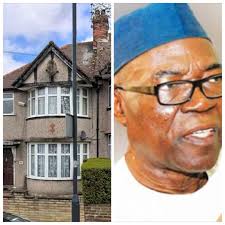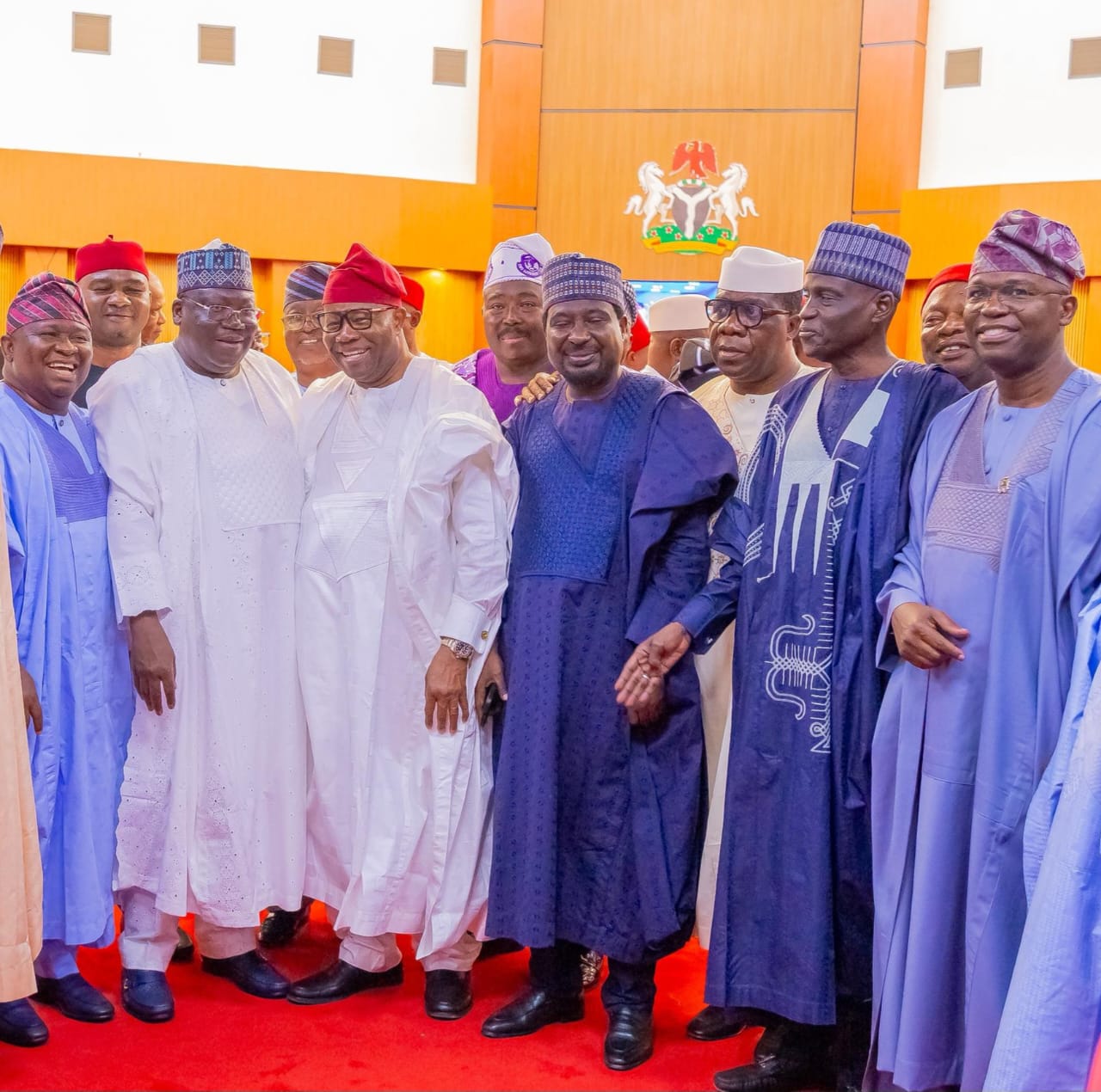Uncategorized
The Matawalle Effect: Reviving DICON’s Strategic Role in Nigeria’s Defence Capabilities

As a teenager living in Kaduna in the 1990s, with an uncle who was a Colonel in the Nigerian Army, I was often puzzled by the annual Christmas gift we received from him—a bag of salt from the Defence Industries Corporation of Nigeria (DICON). Given my understanding that DICON stood for Defence Industries Corporation of Nigeria, I could not fathom why the organization was producing salt instead of military hardware. It struck me as an anomaly because DICON, established to be a leader in the production of weapons, arms, and ammunition, had not lived up to its intended purpose.
DICON was founded in 1964 as part of Nigeria’s defence establishment, with a focus on producing military and defence-related equipment to promote self-reliance in defence production. Additionally, DICON was expected to engage in research and development to innovate and advance Nigeria’s defence technologies. However, it is an undeniable fact that DICON had not fully realized these mandates. Recently, under the administration of President Muhammadu Buhari, efforts were made to reinvigorate DICON and ensure it fulfils its foundational purpose.
In 2015, former President Buhari directed the Ministry of Defence to develop a clear and measurable strategy for enhancing Nigeria’s security industrialization. This was part of his broader vision to re-engineer DICON to meet the nation’s military hardware and logistical needs. In 2019, the President launched the Mine Resistant Ambush Protected (MRAP) vehicle produced by DICON, a notable first in the country’s history. Furthermore, he mandated that all security agencies procure their uniforms and other kits exclusively from DICON.
These commendable initiatives laid the groundwork for DICON’s resurgence, aligning the organization with its original mandate. More recently, under the leadership of President Bola Ahmed Tinubu, DICON has experienced an unprecedented revival, guided by the Honourable Minister of State for Defence, Dr. Bello Matawalle MON.
Nations worldwide place a high premium on their ability to defend against external threats, with self-sufficiency in security being a critical component. The United States, for instance, has several agencies dedicated to this cause. The Defense Logistics Agency handles the procurement and distribution of defence supplies, while the U.S. Army Armament Research, Development, and Engineering Center (ARDEC) focuses on developing and producing weapon systems, ammunition, and related technologies. Additionally, the Defense Advanced Research Projects Agency (DARPA) is at the forefront of developing emerging military technologies.
This is the direction taken by serious nations committed to safeguarding their security. Germany’s Diehl Defence and the United Kingdom’s BAE Systems are similar examples in Europe. Nigeria, a nation rich in resources and blessed with a brilliant populace, should naturally be a leader in producing its own military hardware.
Domestic production of military hardware is fundamental to national security, as it ensures that a country has the necessary equipment and technology to defend itself against potential threats. By manufacturing these items locally, nations reduce their reliance on foreign suppliers who may refuse to sell to them, as was evident in Nigeria’s experience with the U.S. Senate during the purchase of Super Tucano fighter jets—a situation that was both embarrassing and a challenge to our sovereignty.
Imagine Nigeria facing a crisis without the local capability to produce essential military hardware; the consequences could be catastrophic. Therefore, having fully operational defence industries is critical for Nigeria’s responsiveness and resilience.
It is within this context that the current administration’s strategic military objectives, which seek to empower the Defence Industries Corporation of Nigeria, are of paramount importance. Dr. Matawalle recently led DICON in signing a significant Memorandum of Understanding with the National Agency for Science and Engineering Infrastructure (NASENI) to establish a factory for producing arms and ammunition for the Nigerian Armed Forces. This achievement is far from trivial. The establishment of this factory will save Nigeria at least $60 million in bullet purchases from abroad. This money can be redirected towards other critical investments within the Nigerian Defence establishment. Beyond the financial savings, this move signals a bold commitment to security self-reliance.
Dr. Bello Matawalle, a former Governor of Zamfara State, has firsthand experience in addressing security challenges at the state level. He understands the critical importance of equipping troops with the right tools to carry out their duties effectively. By reviving DICON and positioning it strategically as an agency capable of meeting Nigeria’s immediate security hardware needs, the Honourable Minister of State for Defence is ensuring that the corporation fulfils the purpose for which it was established.
Furthermore, the Honourable Minister has emphasized that DICON will be at the forefront of research and development to meet the technological needs of the security sector. This initiative will elevate the industry to the level of its peers, such as ARDEC in the United States and Diehl Defence in Germany. The broader implications for the economy are significant, as Nigeria could soon begin to export the technological products developed by DICON.
DICON holds immense potential, which must be fully harnessed. The industry is fortunate to have a Minister like Dr. Matawalle MON overseeing its operations. To maximize the value of this potential, the Honourable Minister must continue to provide unwavering support to the industry. The current focus on production capacity, partnerships, and research and development must be sustained to achieve meaningful impact. I also recommend that the Minister ensure DICON expands its product range to include specialized equipment that addresses both current and emerging security challenges.
Finally, DICON must build a robust supply chain to ensure consistent access to high-quality materials and components, with an emphasis on local sourcing. This approach will stimulate Nigeria’s local economies, create jobs, and promote technological innovation that will benefit other sectors.
Nathaniel C. Adoji, a public affairs analyst and commentator writes from Kaduna.
Uncategorized
London Property Dispute Exposes Alleged Corruption, Forgery by Nigerian Politician and Lawyer

By Hassan Taiye
A recent judgment by the UK’s First-tier Tribunal (Property Chamber) has shed light on a complex web of alleged corruption and forgery involving a Nigerian politician and a senior lawyer. The case revolves around a disputed property in North London, valued at 79 Randall Avenue.
The property was purchased in 1993 under the name “Tali Shani,” which is allegedly an alias for late General Jeremiah Useni, a powerful member of the Abacha regime. Chief Mike Ozekhome, SAN, claimed the property was gifted to him by “Mr. Tali Shani” in 2021 as payment for legal services. However, the tribunal dismissed this claim, describing it as “fabricated” and “fraudulent.”
The tribunal’s ruling highlights the alleged involvement of Ozekhome and his associates in fabricating documents, including a Nigerian passport, National Identification Number (NIN), and Tax Identification Number (TIN). The NIN was reportedly created remotely from Monaco using a non-compliant photograph and bypassing biometric requirements ¹.
The Human and Environmental Development Agenda (HEDA Resource Centre) has petitioned the Independent Corrupt Practices and Other Related Offences Commission (ICPC) to investigate Ozekhome and others over alleged fraud, forgery, and unlawful attempt to acquire the London property. The ICPC has launched an investigation, and the Attorney-General of the Federation (AGF) has also taken notice of the case ²
Chief Mike Ozekhome, SAN Senior lawyer accused of forgery and attempting to acquire the property through fraudulent means.
General Jeremiah Useni Late Nigerian General allegedly behind the purchase of the property under the alias “Tali Shani.”
Osilama Ozekhome*: Ozekhome’s son, implicated in the alleged forgery and fraud.
Uncategorized
photo

L-r Senate Committee Chairman on Appropriation, Solomon Adeola; Senate Deputy Whip, Onyekachi Nweboyin; Former Senate President, Ahmad Lawan; President of the Senate, Godswill Akpabio; Senator Sharafadeen Ali; Deputy Senate President, Jibrin Barau; Senate Leader, Opeyemi Bamidele; Senate Whip Tahir Monguno and Senate Committee Chairman on Financial Institutions, Tokunbo Abiru, after resumption of plenary yesterday. Photo: Senate President’s Office
Uncategorized
BREAKING: Tinubu’s Minister, Uche Nnaji, Resigns Amid Certificate Forgery Scandal

By: Fabian Apechihin
The Minister of Innovation, Science and Technology, Uche Nnaji, has resigned from President Bola Ahmed Tinubu’s cabinet amid a growing controversy surrounding his academic credentials.
Presidential spokesman Bayo Onanuga confirmed Nnaji’s resignation in a statement issued late Tuesday.
Nnaji’s exit follows mounting allegations that his academic certificates were forged. Investigations revealed that the University of Nigeria, Nsukka (UNN), disowned the Bachelor of Science degree he claimed to possess, stating that he never completed his studies at the institution and was therefore not issued any certificate.
According to UNN Vice-Chancellor Prof. Simon U. Ortuanya, Nnaji was admitted in 1981 but failed to meet the requirements for graduation.
In a related development, the National Youth Service Corps (NYSC) reportedly disowned the certificate of national service presented by Nnaji, describing it as fake.
His resignation marks the latest in a series of controversies to hit the Tinubu administration over questions of integrity and accountability among public officials.
-

 Uncategorized5 years ago
Uncategorized5 years agoFG, states urged to harness flooding for ranching, others with technology – Agbaje
-

 Headlines10 years ago
Headlines10 years agoBreaking: EFCC seals Borno House of Assembly, as Hon members take to their heels
-

 News11 years ago
News11 years agoNigeria Security Operatives Stage Manhunt For Homosexual Perpetrator
-

 News9 years ago
News9 years agoHow 21-year-old Girl fled community over accusation of lesbianism
-

 News10 years ago
News10 years agoYobe Gov Moves Against Deputy
-

 Opinion6 years ago
Opinion6 years ago7 signs she has friend zoned you
-
Technology4 years ago
Online job placement company headhunts women
-

 Headlines9 years ago
Headlines9 years agoBorno Dep Gov Abducts Another Church Leader





